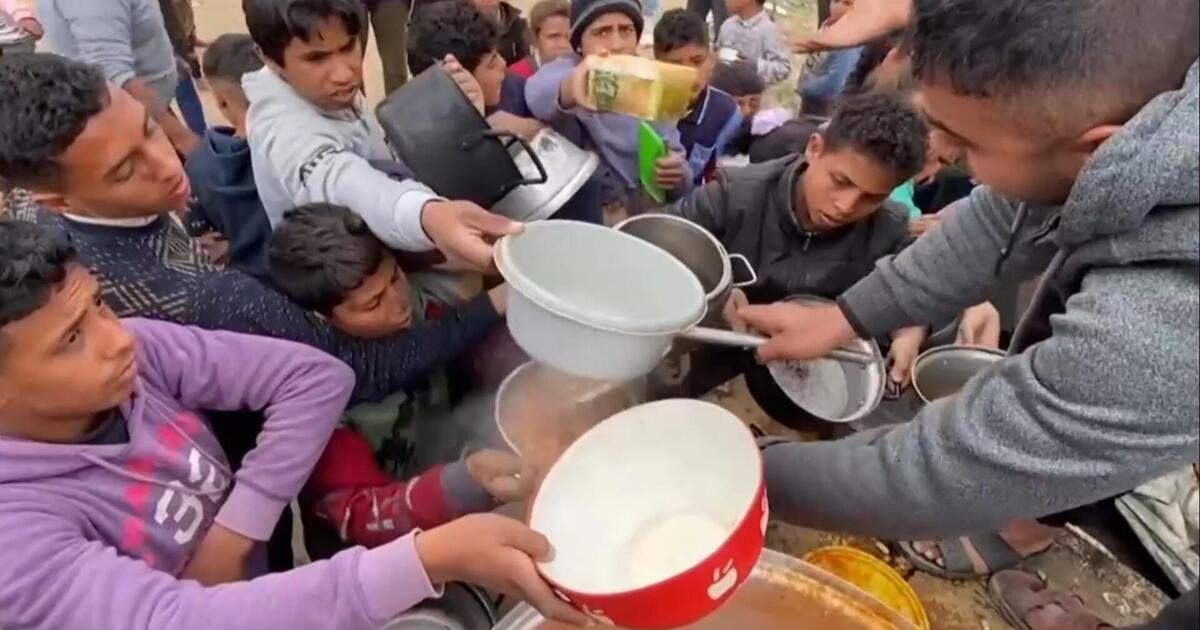Gaza’s Food Crisis Deepens Amidst Hostage Negotiations and Military Pressure
As the conflict in Gaza escalates, the humanitarian situation has taken a dire turn, particularly regarding food supplies. The ongoing military pressure combined with intense negotiations surrounding hostages has exacerbated an already critical food crisis in the region. With each passing day, the struggle to secure basic necessities becomes more challenging for the residents of Gaza, creating an urgent need for international attention and humanitarian intervention.
The Current State of Food Supplies in Gaza
In recent months, the situation in Gaza has deteriorated significantly. Blockades and military actions have severely restricted the flow of goods and essential supplies. According to various humanitarian organizations, food stocks are critically low, with many families unable to access sufficient nutrition. Reports indicate that staple foods such as bread, rice, and fresh produce are becoming increasingly scarce, leading to rising prices and increased food insecurity among the population.
The United Nations has warned that nearly 2 million people in Gaza face acute food shortages. Food insecurity is not only a matter of hunger; it can lead to malnutrition, particularly among vulnerable populations such as children and the elderly. The psychological toll of living under such conditions further compounds the crisis, creating a cycle of despair that impacts the community’s resilience.
Hostage Negotiations: Adding Complexity to the Crisis
The situation is further complicated by ongoing negotiations for the release of hostages taken during the conflict. These talks have become a focal point of international diplomacy, with various stakeholders vying for influence. The pressure on Hamas to release hostages has led to increased military actions, creating an environment of fear and uncertainty.
- Impact on Humanitarian Efforts: The focus on hostages often overshadows urgent humanitarian needs. Aid organizations struggle to deliver food and medical supplies amidst the chaos, and any military escalation can disrupt their efforts.
- Community Tensions: The divide between those advocating for hostages and those focused on humanitarian needs can create tensions within the community. Families are often torn between wanting their loved ones released and the necessity of ensuring survival for the rest.
International Response and Humanitarian Aid
In light of Gaza’s food crisis, humanitarian organizations have been striving to provide assistance, but their efforts are often met with significant challenges. The blockade has severely limited the entry of food and other essential supplies. Furthermore, funding for humanitarian efforts is frequently inadequate, leaving organizations struggling to meet the growing demands.
International bodies, including the United Nations and various non-governmental organizations, have called for immediate action to alleviate the food crisis. This includes:
- Increased Aid Deliveries: Urgent calls for more humanitarian aid are being made to ensure that food and medical supplies reach those in need.
- Pressure on All Parties: Advocating for a ceasefire to allow for humanitarian corridors is vital. Without a pause in hostilities, delivering aid becomes nearly impossible.
Local Resilience and Community Initiatives
Despite the overwhelming challenges, the people of Gaza demonstrate remarkable resilience. Local initiatives are emerging as communities band together to support one another. Community kitchens and food distribution centers are being established to help feed families in need. Grassroots organizations, often supported by local volunteers, are working tirelessly to ensure that no one goes hungry.
These community-driven efforts highlight the human spirit’s capacity to endure even in the harshest conditions. Many residents have taken it upon themselves to share their resources, whether through communal meals or shared food supplies. This solidarity helps to foster a sense of hope amidst despair.
The Role of Social Media and Global Awareness
Social media has played a pivotal role in raising awareness about Gaza’s food crisis. Activists and local citizens leverage platforms to share stories, images, and urgent calls for help. The global community can connect with the realities on the ground, fostering a sense of empathy and urgency.
Increased visibility on social media has led to a surge in international support, with campaigns aimed at raising funds and resources for humanitarian aid. However, there is a fine line to tread; while raising awareness is crucial, it is imperative that the narratives shared are respectful and accurate, honoring the dignity of those affected.
Looking Ahead: Hope Amidst Challenges
While the food crisis in Gaza is undoubtedly severe, there is a glimmer of hope. International advocacy, combined with local initiatives, can lead to meaningful change. The emphasis on humanitarian needs, alongside the complex dynamics of hostage negotiations, must be balanced to ensure that all voices are heard.
As the global community rallies for support, it is vital to remember that the people of Gaza are not just statistics; they are individuals, families, and communities striving for a better future. Continued pressure on all parties involved to prioritize humanitarian aid can pave the way for a more stable and peaceful resolution.
In conclusion, Gaza’s food crisis deepens amidst hostage negotiations and military pressure, but through collective action and compassion, there is potential for relief. The resilience of the people in Gaza, combined with global support, can ultimately lead to a brighter future, one where food security and human dignity are restored.
See more CNN Headline


